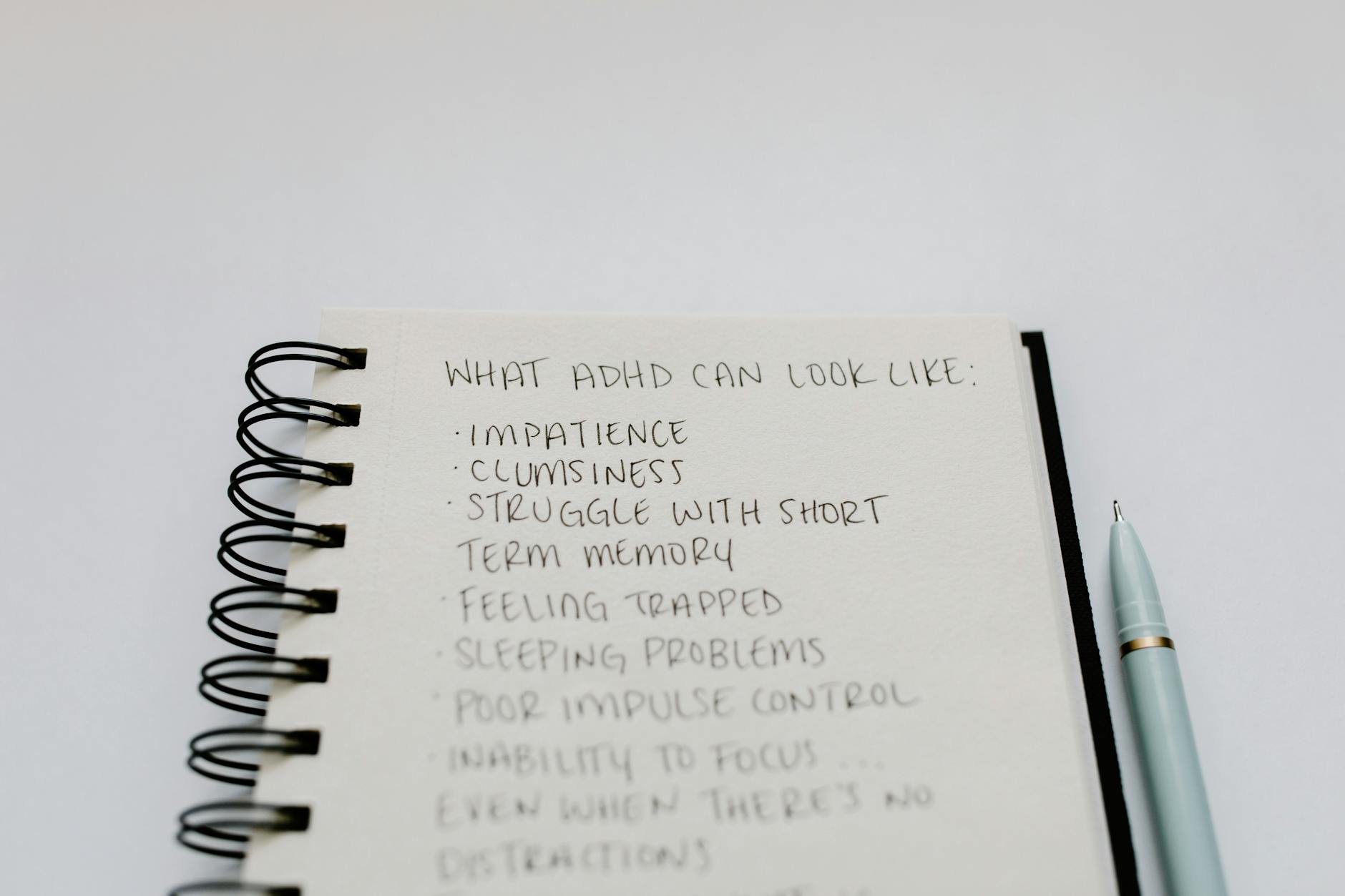What is adhd lifestyle changes?
What is adhd lifestyle changes?
Living with ADHD can be challenging, but making specific lifestyle changes can significantly improve daily functioning and overall well-being. ADHD, or Attention Deficit Hyperactivity Disorder, impacts millions of people, affecting their ability to focus, manage time, and maintain productive routines. In this article, I’ll explore effective lifestyle changes that can help individuals with ADHD thrive.
Understanding ADHD: Symptoms and Challenges
ADHD is characterized by a range of symptoms that can disrupt daily life, making productivity and personal development difficult. It’s not just about being hyperactive; it encompasses various challenges that require understanding and effective strategies to manage.
Common Symptoms of ADHD
ADHD symptoms can vary widely among individuals but generally fall into three categories: inattention, hyperactivity, and impulsiveness.
- Inattention: Individuals may struggle to focus on tasks, follow through on instructions, or keep organized. This can lead to missed deadlines and unfinished projects.
- Hyperactivity: Some people with ADHD may be unable to sit still, feeling restless or fidgety. This restlessness can make it hard to engage in quiet activities.
- Impulsiveness: Impulsive behavior can manifest as difficulty waiting for one’s turn, interrupting others, or making hasty decisions without considering the consequences.
Challenges Faced by Individuals with ADHD
The implications of these symptoms can be far-reaching. Time management becomes a constant battle as distractions pull focus away from important tasks. Work-life balance often tilts toward chaos, making it hard to maintain relationships, meet responsibilities, or even pursue personal goals. Individuals may find themselves feeling overwhelmed and frustrated, leading to lower self-esteem and increased anxiety.
For more information on how ADHD affects adults, I recommend checking out the Mayo Clinic’s overview of symptoms.
Effective Lifestyle Changes for Managing ADHD
Adopting specific lifestyle changes can offer significant relief and improvement in managing ADHD symptoms. Here are some practical, actionable strategies to consider.
Establishing Routines
Creating structured daily routines can greatly enhance time management. Routines provide predictability, helping individuals know what to expect each day. Start with a morning routine that may include activities like making your bed, having a healthy breakfast, and planning your day. Consistency is key; the more you stick to your routine, the more natural it will become.
Diet and Nutrition
Nutrition plays a crucial role in managing ADHD symptoms. Eating a balanced diet rich in omega-3 fatty acids, found in fish like salmon, can positively impact brain function. Reducing sugar intake and avoiding processed foods may also help minimize hyperactivity. Consider incorporating whole foods, vegetables, and plenty of water into your daily meals. For more insights on dietary adjustments, check out this ADHD lifestyle change guide.
Exercise and Physical Activity
Regular exercise can be a powerful tool against ADHD symptoms. Engaging in physical activity helps to release pent-up energy, enhances mood, and improves focus. Aim for at least 30 minutes of moderate exercise several times a week. Activities like running, biking, or even dancing can be enjoyable while providing the needed physical outlet.

Photo by Tara Winstead
Mindfulness and Stress Management
Mindfulness techniques such as meditation, yoga, and breathing exercises can significantly reduce stress and improve overall focus. Practicing mindfulness increases awareness and can help manage impulsive reactions. Set aside a few minutes each day to meditate or engage in deep breathing exercises to cultivate a state of calm and focus.
Tools and Techniques for Productivity
Implementing specific tools and strategies can enhance productivity for individuals with ADHD, making it easier to manage daily tasks.
Using Technology to Stay Organized
There’s an array of apps designed specifically to assist with organization and task management. Tools like Todoist, Trello, or Notion can help you keep track of tasks, set reminders, and visualize your day. Find what works best for you and stick to it.
Time Management Strategies
Adopting time management techniques can help improve focus and productivity. The Pomodoro Technique, for instance, involves working in short bursts (typically 25 minutes) followed by a 5-minute break. This method can help maintain concentration and prevent burnout. Another effective method is time-blocking, where you allocate specific blocks of time for tasks, helping to keep you on track throughout the day.
Conclusion: Embracing ADHD Lifestyle Changes
Understanding ADHD and implementing lifestyle changes can lead to significant improvements in managing symptoms. By establishing routines, focusing on nutrition, staying active, and utilizing effective productivity tools, individuals can enhance their daily lives. Embrace these changes and take proactive steps toward managing ADHD more effectively. With dedication and practice, you can create a fulfilling, productive life.
For further insights on how to navigate adult ADHD, visit CHADD’s resources on lifestyle strategies.